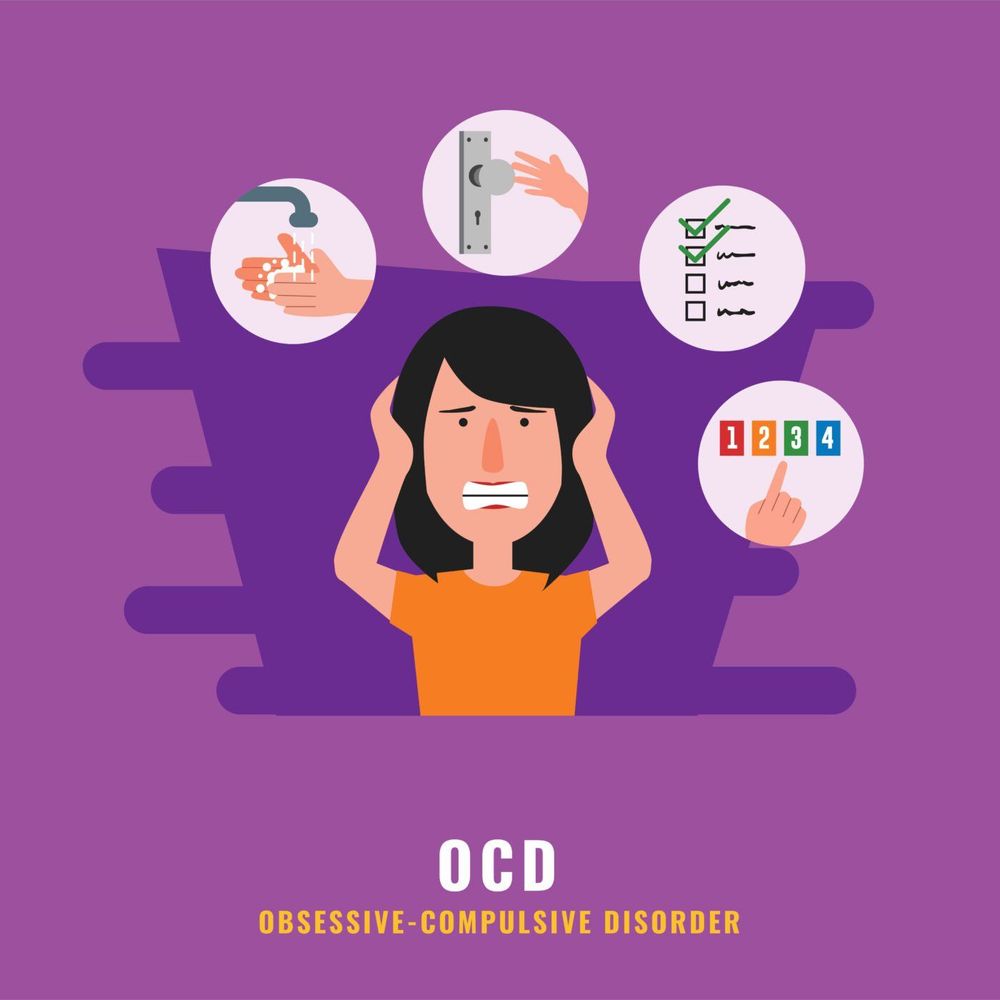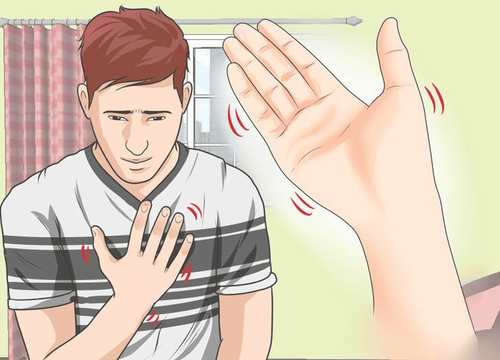This is an automatically translated article.
The fear of the invisible or the unknown can be difficult to describe because all the feelings and thoughts surrounding this fear are in our heads. These negative feelings and thoughts create mental blocks. It is these mental blocks that affect the way we live, and if let loose can have a negative impact on health. The article will help you better understand the causes, symptoms, risk factors of invisible fear in life and ways to overcome it.1. What is the fear of the invisible?
Uncertainty is part of our experience. Some people show strength in times of uncertainty; while others even become numb or emotionally disturbed. How people react to uncertainty may depend on how fearful they are of the unknown.If a person is afraid of spiders or snakes, that may be based on what they already know about these two species: They are venomous and can literally kill them. But not all fears are based on such specific information. There are some fears based on what we don't know at all.
Take Wall Street for example. Stock prices plunge as investors fear that an event will hurt the economy. A more personal example? Fear of public speaking. Part of the horror many people feel on stage is not knowing how the audience will react. Fear of the unknown is a fundamental part of many other anxieties, fears, and phobias. In this article, we will explore common symptoms, who are at risk, and how to overcome this fear.
The psychological term for fear of the unknown is "xenophobic". In modern usage, the word has evolved to mean fear of strangers or foreigners - but its original meaning was much broader. It includes anything or anyone that is unfamiliar or unknown. Researchers define fear of the invisible as the tendency to fear something about which we do not have any information. For some people, fear of the unknown can make them feel uncomfortable, even down.
If a person feels extremely uncomfortable and anxious when faced with an unknown or unfamiliar situation, they may have developed a state of mind known as “uncertainty intolerance.” ". This means that such people feel unable to tolerate uncertain circumstances.
2. Symptoms and causes of fear of the invisible
2.1. The most common symptoms of fear of the invisible The effect of fear of the invisible can be expressed through a number of symptoms, including:Fast heartbeat Rapid, shallow breathing Muscle tension Feelings of weakness, lack of vitality Blood sugar (blood sugar) spikes When a threat is short-lived, these symptoms go away quickly. However, if we feel almost constantly afraid of the unknown, that can be harmful to our health.
If a person has a tendency to worry about the unknown, they may have developed a habit of imagining worst-case scenarios or even possible disasters. Disaster is known as a cognitive distortion. This is a way of thinking that creates an inaccurate view of reality.

Tim đập nhanh, thở nông là những ảnh hưởng phổ biến của nỗi sợ hãi vô hình
Lack of predictability: Feeling that we do not have enough information to make a prediction Accurate predictions can increase our anxiety. One way to combat a lack of predictability is to seek out more information. For example, if you're feeling apprehensive about the unknowns regarding your new school or living area, you might consider exploring those areas before moving. You can take in-person or online tours to learn more about what your new life will be like.
Lack of control : Feeling that we cannot control our circumstances will definitely cause our anxiety levels to increase. Age and disability can both reduce a person's sense of self-control (the belief that we can take care of our own lives). To regain our sense of self-control, we can start by analyzing our circumstances and making a list of the things we can and cannot control. You can also reduce uncertainty by making a plan that includes steps you can take in areas of your control.
3. Risk factor of fear of the invisible
While anyone can develop a fear of the unknown, behavioral scientists have found that certain groups of people may be especially susceptible to this type of anxiety. Risk factors associated with invisible fears include:3.1. Anxiety and Fear Disorders If you have an anxiety and fear disorder, you may be more likely to develop a fear of the invisible. In a 2016 study, Trusted Source researchers tested the startle reflex by exposing 160 adults to unpredictable sounds and shocks. They found that people with social anxiety disorder and specific phobias blinked more and faster when they had to anticipate an unpleasant, unspecified experience.
This led the researchers to conclude that these people are more sensitive to worrying about the unknown. Children with anxiety disorders seem to be especially vulnerable to the unseen.
3.2. Depression People with depression feel more anxious about uncertainty than people without depression. But some psychologists question the link between fear of the unknown and depression, because depression is viewed as a feeling of certainty. For example, the feeling of despair comes from the thought that there is definitely nothing good about what is and is about to happen.
Some psychologists suggest that it is more likely that the fear of the unknown in people with depression stems from the anxiety that accompanies major depression.
3.3. Alcohol use disorder There seems to be a link between fear of the unknown and alcohol use disorder. In a study done in 2016, researchers used similar experimental conditions (predictable and unpredictable electrical stimulation) and found that the study participants Those with a history of alcohol use are often sensitive to unseen fears. The researchers concluded that people may be using alcohol as a way to cope with their fear of the unknown.

Những người sử dụng rượu thường nhạy cảm hơn với nỗi sợ vô hình
3.5. Electronic Device Use In a 2017 meta-analysis that builds on the results of many previous studies, researchers found a potential link between forming a fear of the invisible and being afraid of the invisible. The use of mobile phones and the internet as well as social networks is increasing. It seems that people use their phones as something that can give them peace of mind throughout the day. Over time, this habit can reduce these people's tolerance for the usual uncertainties, triggering a fear of the unknown.
3.6. Obsessive-compulsive disorder The inability to tolerate uncertainty is a common worry for people with obsessive-compulsive disorder (OCD). In a 2013 study, 603 study participants with obsessive-compulsive disorder answered questions about their symptoms. The fear of the invisible was what caused four of the symptoms they reported:
Getting things too organized Regularly double-checking work and items Frequently washing hands Stay away polluted places

Rối loạn ám ảnh cưỡng chế là một trong những yếu tố nguy cơ gây nỗi sợ hãi vô hình
Fear of the invisible is the tendency to fear when you do not have any information about what you are facing. It can develop into an unacceptable state of uncertainty. Some people are more likely to experience fear of the unknown, for example people with anxiety and mood disorders, eating disorders, hoarding disorders, alcohol use disorders, phobias compulsions.... To manage your fear, you can identify areas of your control, make a step-by-step plan, practice mindfulness to stay in the moment, or talk to someone you trust. A healthy lifestyle can give you the strength and clarity of mind you need to thrive amid uncertainty.
Please dial HOTLINE for more information or register for an appointment HERE. Download MyVinmec app to make appointments faster and to manage your bookings easily.
Reference sources: healthline.com, minimalismmadesimple.com











